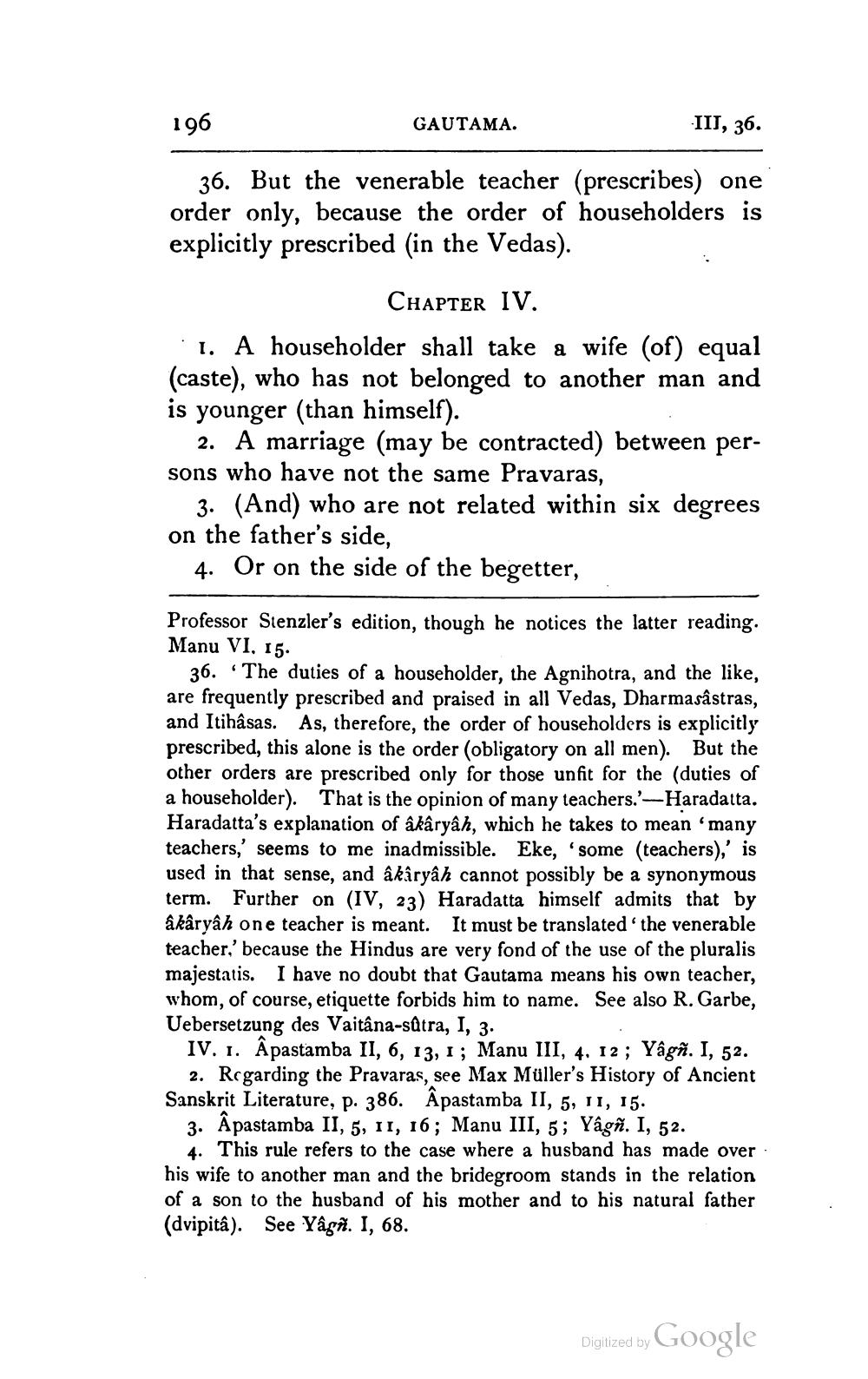________________
196
GAUTAMA.
III, 36.
36. But the venerable teacher (prescribes) one order only, because the order of householders is explicitly prescribed (in the Vedas).
CHAPTER IV. 1. A householder shall take a wife (of) equal (caste), who has not belonged to another man and is younger (than himself).
2. A marriage (may be contracted) between persons who have not the same Pravaras,
3. (And) who are not related within six degrees on the father's side,
4. Or on the side of the begetter,
Professor Stenzler's edition, though he notices the latter reading. Manu VI, 15.
36. The duties of a householder, the Agnihotra, and the like, are frequently prescribed and praised in all Vedas, Dharmasastras, and Itihâsas. As, therefore, the order of householders is explicitly prescribed, this alone is the order (obligatory on all men). But the other orders are prescribed only for those unfit for the (duties of a householder). That is the opinion of many teachers.'-Haradatta. Haradatta's explanation of âkâryâh, which he takes to mean 'many teachers,' seems to me inadmissible. Eke, 'some (teachers),' is used in that sense, and âkâryâh cannot possibly be a synonymous term. Further on (IV, 23) Haradatta himself admits that by â kâryâh one teacher is meant. It must be translated the venerable teacher,' because the Hindus are very fond of the use of the pluralis majestatis. I have no doubt that Gautama means his own teacher, whom, of course, etiquette forbids him to name. See also R. Garbe, Uebersetzung des Vaitâna-sûtra, I, 3.
IV. 1. Âpastamba II, 6, 13, 1; Manu III, 4, 12 ; Yâgñ. I, 52.
2. Regarding the Pravaras, see Max Müller's History of Ancient Sanskrit Literature, p. 386. Apastamba II, 5, 11, 15.
3. Âpastamba II, 5, 11, 16; Manu III, 5; Yâgñ. I, 52.
4. This rule refers to the case where a husband has made over his wife to another man and the bridegroom stands in the relation of a son to the husband of his mother and to his natural father (dvipitâ). See Yågn. I, 68.
Digitized by Google




